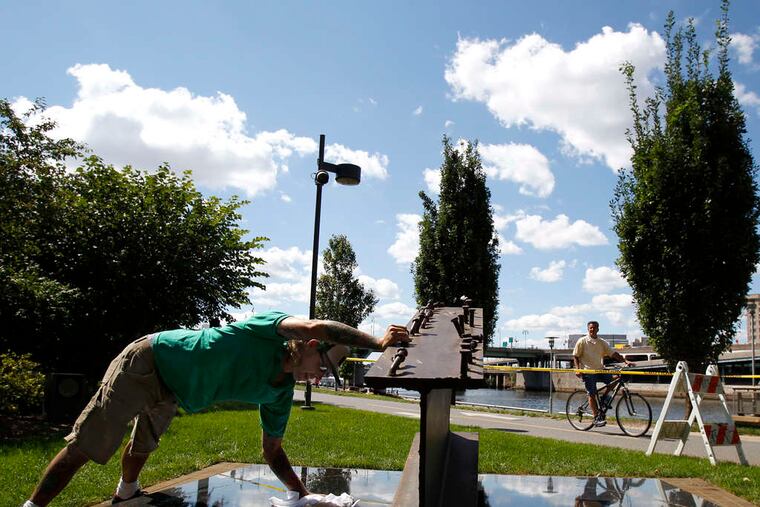How 9/11 ended my political apathy | Perspective
My plans for a seamless immersion into college life weren't working out as planned.Then the Sept. 11 attacks happened.

When I left Cincinnati, Ohio, in August 2001, I was all set to immerse myself in a big city. I was starting my freshman year at the University of Pennsylvania and thought I would easily assimilate into college life. I was most nervous about not being able to train and play on my high school’s varsity soccer team. Prior to packing and leaving Cincinnati, I had taken one last drive to the practice fields and strolled the grounds. I couldn’t believe I wasn’t going to be on the field at all that fall. I had always been a student athlete.
Immediately at college, life felt different. Unlike in high school, the earliest I had to be at class was 9 a.m. I was learning a lot, and adjusting even more. While I was slowly beginning to make friends in Philadelphia, my plans for a seamless immersion didn’t seem to be working as planned.
Then nearly three weeks into school, the Sept. 11 attacks happened.
I found out while heading back to my dorm after my 9 a.m. class, when my hall mate stopped me on Locust Walk to ask if I’d heard the news. I just stared blankly while he told me. My brain was scrambled from 90 minutes spent dissecting religious literature among my peers in class. When I got back to my dorm room, I found others from my hall wandering aimlessly. We were all in shock. We watched the news together, talked, and tried to make sense of what was happening. Was this real life?
As the news cycle continued to unfold, we learned that nearly 3,000 people had lost their lives that day. They would never have a tomorrow or next year.
I’d never taken much of an interest in civic engagement before; I’d only followed along any major current event if it was for a school project. Sept. 11 changed all of that for me.
While in school, and in the months following, I found myself volunteering in a local politics during the historic election years of 2007 and 2008, when the United States elected Barack Obama, our first African American president. By then I was hooked. A few years after undergrad, I found myself enrolling in the Fels Institute of Government at the University of Pennsylvania, rather than to law school as I’d planned. And after that I took my research analyst and technology skills to the public sector in Philadelphia. Most recently, I worked as an analyst in performance management in municipal government.
When I moved to Philadelphia, I knew only my world in Ohio. Then the entire country was rocked by tragedy. Trying to hold onto the life I’d had before became secondary to realizing that there was so much more out there to explore. It was my time to confront bold new possibilities on the heels of deep, historic turmoil.
As America closes out 2019, we continue to face political uncertainty. But I can confidently say that I still believe that change for the better can happen after tragedy. In spite of trials, progress is possible.
Talia Stinson lives in Old City. She has been in Philadelphia over 19 years and worked in the nonprofit, private, and government sectors.